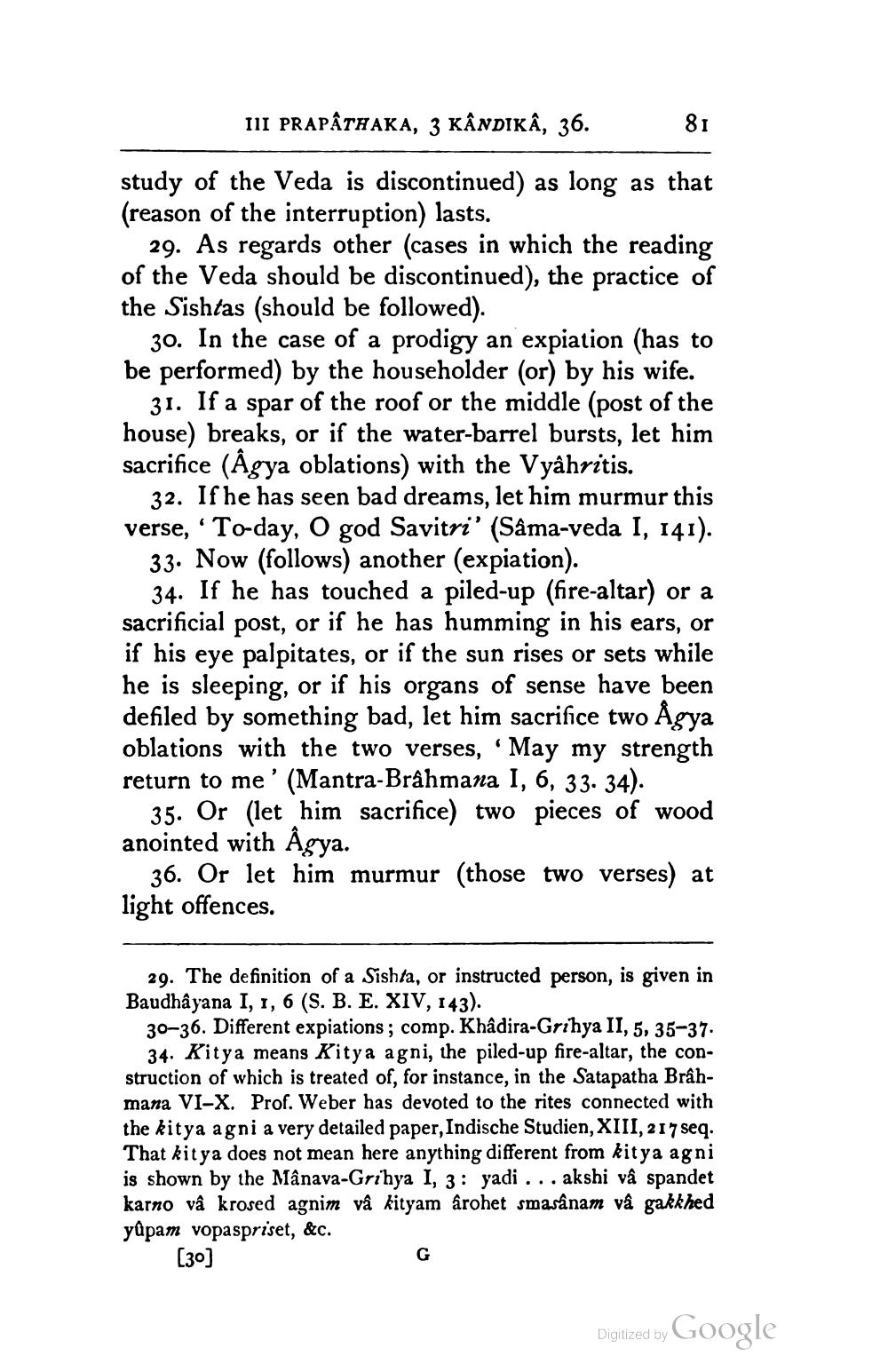________________
III PRAPATHAKA, 3 KÂNDIKA, 36.
study of the Veda is discontinued) as long as that (reason of the interruption) lasts.
29. As regards other (cases in which the reading of the Veda should be discontinued), the practice of the Sishtas (should be followed).
30. In the case of a prodigy an expiation (has to be performed) by the householder (or) by his wife.
31. If a spar of the roof or the middle (post of the house) breaks, or if the water-barrel bursts, let him sacrifice (Agya oblations) with the Vyâhritis.
32. If he has seen bad dreams, let him murmur this verse, 'To-day, O god Savitri' (Sâma-veda I, 141).
33. Now (follows) another (expiation).
34. If he has touched a piled-up (fire-altar) or a sacrificial post, or if he has humming in his ears, or if his eye palpitates, or if the sun rises or sets while he is sleeping, or if his organs of sense have been defiled by something bad, let him sacrifice two Âgya oblations with the two verses, 'May my strength return to me' (Mantra-Brahmana I, 6, 33. 34).
35. Or (let him sacrifice) two pieces of wood anointed with Âgya.
36. Or let him murmur (those two verses) at light offences.
81
29. The definition of a Sishta, or instructed person, is given in Baudhâyana I, 1, 6 (S. B. E. XIV, 143).
30-36. Different expiations; comp. Khâdira-Grihya II, 5, 35-37. 34. Kitya means Kitya agni, the piled-up fire-altar, the construction of which is treated of, for instance, in the Satapatha Brâhmana VI-X. Prof. Weber has devoted to the rites connected with the kitya agni a very detailed paper, Indische Studien, XIII, 217 seq. That kitya does not mean here anything different from kitya agni is shown by the Mânava-Grihya I, 3: yadi... akshi vâ spandet karno vâ krosed agnim vâ kityam ârohet smasânam vâ gakkhed yupam vopaspriset, &c.
[30]
G
Digitized by
Google




